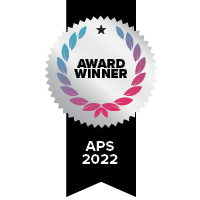Back
PHYSIOLOGY
Category: Physiology
Session: 722 APS Role of immune cells in fluid balance and blood pressure control Poster Session
(722.6) ROCK2 Specific Inhibition Attenuates DOCA Salt-Induced Cardiac Fibrosis and Renal T Cell Infiltration
Monday, April 4, 2022
10:15 AM – 12:15 PM
Location: Exhibit/Poster Hall A-B - Pennsylvania Convention Center
Poster Board Number: E163
Daniel Fehrenbach (Vanderbilt University Medical Center), Charles Smart (Vanderbilt University), Meena Madhur (Vanderbilt University Medical Center, Vanderbilt University Medical Center, Vanderbilt University Medical Center)
Daniel Fehrenbach
Presenting Author
Vanderbilt University Medical Center
Presenting Author(s)
Hypertension, or an elevated blood pressure, is the primary modifiable risk factor for cardiovascular disease, the number one cause of mortality worldwide. We previously demonstrated that Th17 activation and interleukin 17A (IL-17A)/IL-21 production is integral for the full development of a hypertensive phenotype as well as the renal and vascular damage associated with hypertension. Rho-associated coiled-coil containing protein kinase 2 (ROCK2) serves as a molecular switch upregulating Th17 and inhibiting regulatory T cell (Treg) differentiation of CD4+ T cells. Initially, we measured ROCK2 expression and found that ROCK2 is upregulated in splenic and renal CD4+ T cells in hypertensive mice, confirming the potential for influencing hypertension-associated T cell activation. We then hypothesized that excessive T cell ROCK2 activation, leading to increased Th17/Treg ratios, contributes to hypertension and ultimately, end-organ damage. We first showed in vitro that KD025, an orally bioavailable ROCK2 inhibitor, inhibits Th17 proliferation and IL-17A/IL-21 production. To determine if hypertensive stimuli such as endothelial stretch increase T cell ROCK2 expression, we cultured human aortic endothelial cells exposed to 5% (normotensive) or 10% (hypertensive) stretch with circulating human T cells and HLA-DR+ antigen presenting cells. Hypertensive stretch increased T cell ROCK2 expression 2-fold. We then tested the effect of ROCK2 inhibition in vivo on DOCA (deoxycorticosterone) salt-induced hypertension. DOCA-salt (uninephrectomy + 100mg DOCA pellet + 1% NaCl drinking water, n=19) was initiated in all animals allowing for hypertension to develop for 10 days, followed by treatment with the ROCK2 specific inhibitor KD025 (50mg/kg i.p. daily starting on Day 11, n=11) for the remainder of the 21-day protocol. KD025 treatment significantly attenuated cardiac hypertrophy (8.7±0.29 vs 7.6±0.21 mg/grams body weight, p=0.005) and left ventricular (LV) fibrosis (4.9±1.7 vs 2.4±1.3% LV area, p=0.008) by the termination of the study. Flow cytometric analysis revealed that KD025 treatment attenuated renal leukocyte infiltration (414.6±81.5 vs 317.1±43.6 cells/mg tissue, p=0.057) primarily due to an attenuation in the number of CD3+ T cell infiltrates (58.99±5.55 vs 43.45±3.77 cells/mg tissue, p=0.019). Additional studies were performed using the Angiotensin II (Ang II, 490ng/kg/min) model of hypertension which demonstrated that KD025 treatment starting on Day 1 of Ang II infusion significantly blunted the hypertensive response as early as one week of Ang II treatment (139.4±8.5 vs 108±4.8 mmHg systolic blood pressure, plt;0.05, n=5-6). This protection was accompanied by a decreased Th17/Treg ratio (1.66±0.11 vs 1.31±0.13, p=0.029) of renal T cells in vivo, confirming the effects of KD025 observed in the prior in vitro experiments. These data indicate that the ROCK2-specific inhibitor KD025 may be a novel therapeutic for the treatment of hypertension and the associated tissue damage.
AHA-DF837441, NIH-1T32AI138932-01A1, 1DP2 HL137166-01, 19EIA34480023 and 19IPLOI34760558
AHA-DF837441, NIH-1T32AI138932-01A1, 1DP2 HL137166-01, 19EIA34480023 and 19IPLOI34760558

